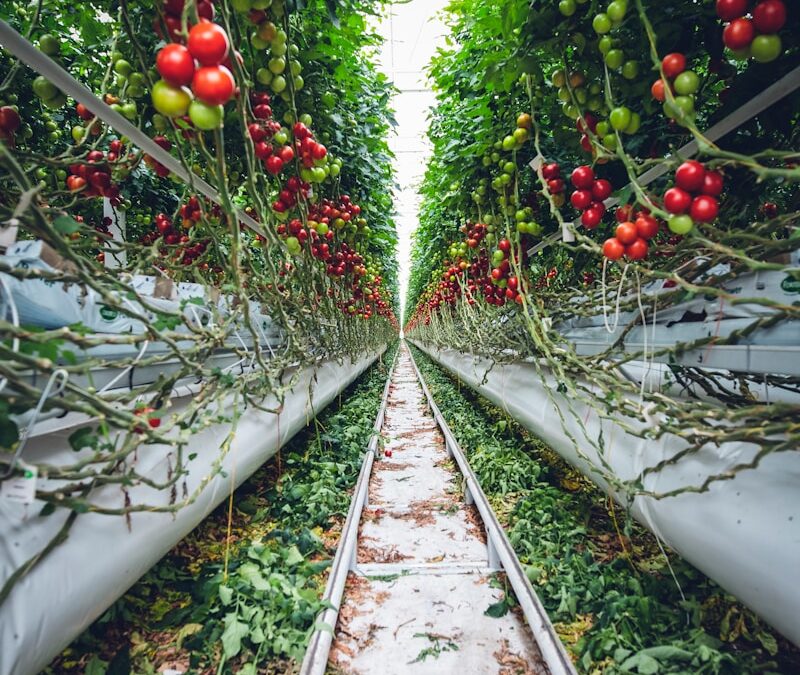The Advantages of Aquaponic Systems in Urban Agriculture
Space Efficiency and Urban Food Production
Aquaponic systems in urban agriculture offer a revolutionary approach to maximizing space efficiency while supporting local food production. By integrating aquaculture (raising fish) with hydroponics (growing plants in water), aquaponics creates a symbiotic environment that utilizes space more effectively than traditional farming methods. In densely populated cities like Riyadh, Dubai, and across Saudi Arabia and the UAE, where land is at a premium, aquaponics can be implemented on rooftops, in greenhouses, and even within buildings. This innovation not only maximizes the use of available space but also brings food production closer to urban consumers, enhancing food security and sustainability.
Environmental Benefits and Sustainability
Aquaponic systems significantly reduce the environmental impact of food production by minimizing water usage and eliminating the need for chemical fertilizers and pesticides. The closed-loop system of aquaponics ensures that water and nutrients are continuously recycled, leading to a reduction in water consumption by up to 90% compared to traditional farming methods. This is particularly beneficial in arid regions like Saudi Arabia and the UAE, where water conservation is critical. Additionally, by localizing food production, aquaponics reduces food miles—the distance food travels from farm to consumer—thereby lowering carbon emissions associated with transportation.
Economic Viability and Business Success
For business executives, mid-level managers, and entrepreneurs, the economic viability of aquaponic systems is a compelling advantage. These systems can yield high productivity in a relatively small footprint, making them an attractive investment. The continuous production cycle of aquaponics, unaffected by seasonal changes, ensures a steady supply of fresh produce and fish throughout the year. This reliability can lead to consistent revenue streams and market presence. Furthermore, the increasing consumer demand for locally-sourced and sustainably-produced food provides a lucrative market opportunity for businesses adopting aquaponic systems in urban agriculture.
Integrating Advanced Technologies in Aquaponic Systems
The integration of Artificial Intelligence (AI) into aquaponic systems can significantly enhance their efficiency and productivity. AI technologies can monitor and control various environmental parameters such as temperature, humidity, pH levels, and nutrient concentrations in real-time. By analyzing data continuously, AI can optimize the growing conditions for both plants and fish, leading to improved yields and resource efficiency. In cities like Riyadh and Dubai, where technological innovation is embraced, the adoption of AI in aquaponics can set a benchmark for smart urban agriculture.
Blockchain for Transparency and Trust
Blockchain technology offers a robust solution for ensuring transparency and traceability in aquaponic systems. By recording every transaction and process on a decentralized ledger, blockchain ensures that data is immutable and verifiable. This level of transparency is crucial for maintaining high standards of food safety and quality. Consumers can trace the origin of their food, ensuring it is produced sustainably and ethically. For management consultants and business leaders in the UAE and Saudi Arabia, leveraging blockchain can enhance consumer trust, streamline operations, and differentiate their products in a competitive market.
The Metaverse and Virtual Collaboration
The Metaverse provides a unique platform for virtual collaboration and training in the field of aquaponics. Through virtual reality (VR) environments, stakeholders can simulate aquaponic systems, conduct virtual tours, and participate in interactive training sessions. This immersive experience is invaluable for educating staff, conducting remote inspections, and engaging with investors and customers. For entrepreneurs and mid-level managers, the Metaverse offers an innovative way to collaborate, learn, and promote aquaponic systems, driving both technological adoption and business growth.
Executive Coaching for Leadership Excellence
Strong leadership is vital for driving the success of aquaponic initiatives. Executive coaching services can help leaders develop the necessary skills to navigate the complexities of aquaponic systems. Coaching focuses on strategic thinking, effective communication, and the ability to inspire and motivate teams. In competitive markets such as Saudi Arabia and the UAE, executive coaching equips leaders with the tools to lead transformative projects, foster innovation, and achieve sustainable business growth.
Enhancing Communication and Collaboration
Effective communication and collaboration are key to the success of aquaponic operations. Business executives and managers must articulate the benefits of aquaponics to investors, employees, and consumers clearly and persuasively. In multicultural regions like Saudi Arabia and the UAE, understanding and respecting cultural differences is crucial for building strong relationships and fostering teamwork. By promoting open communication and collaboration, businesses can enhance team cohesion, ensure successful project implementation, and drive sustainable agricultural practices that benefit both the environment and the economy.
#Aquaponics #UrbanAgriculture #SpaceEfficiency #LocalFoodProduction #EnvironmentalImpact #BusinessSuccess #EffectiveCommunication #ManagementConsulting #ArtificialIntelligence #Blockchain #Metaverse #LeadershipSkills #ManagementSkills #ProjectManagement #SaudiArabia #UAE #Riyadh #Dubai #ChangeManagement #ExecutiveCoaching

